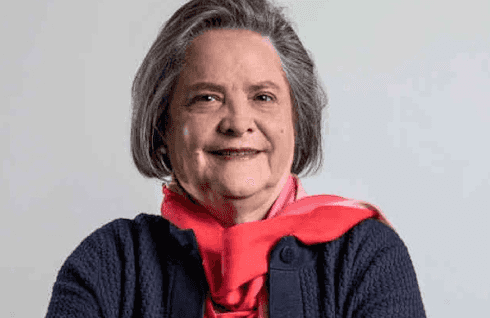
"Recovering the resources that have been usurped since time immemorial is tantamount to reclaiming our destiny". This appears to what Allende concluded from the Patria Grande writer Eduardo Galeano's reflections. It is in the evolution of foreign hands exploiting Latin America's natural resources that the imprint of the Monroe Doctrine can be seen. This December 2nd marks two hundred years of it obstructing the self-determination of our peoples.
In the current context of intense global dispute, it is essential to understand the historical perspective and geopolitical matrix of the United States towards the rest of the American continent. The US has contemptuously considered it to be its "backyard " and diplomatically the "Western Hemisphere ".
The aforementioned "Doctrine ", this Washington "dogma ", stands as one of the main obstacles to the possibilities of emancipation and regional integration. Over the years, it has manifested itself in various interventionist permutations. It was Theodore Roosevelt's corollary called "The Big Stick". It was the Communist containment policy manifesting itself in the National Security and Enemy Within Doctrine, the mantra of counter-insurgency. It was Operation Condor, which produced a terrifying trail of corpses and the coup against Allende. It still persists today with the application of lawfare or legal and media warfare that has removed ten democratically elected progressive leaders from their governments and prevented the election of three more and counting. All these policies are expressions of a persistent and constantly developing Monroeism.
The main challenge for the progressive Latin American community is to rethink ourselves in the spirit of Bolivarianism, of autonomous political integration, without the tutelage of the United States, in order to put into practice a horizontal, non-subordinated relationship with the giant of the North. This is a fundamental intellectual and political task that cannot be postponed at a time of profound geopolitical transformations, including the relative decline of US hegemony and the rise of the Asia-Indo-Pacific region, with China at the forefront, reconfiguring a more multipolar world in which Latin America and the Caribbean are an increasingly contested area.
In this sense, the common dream of Bolívar's League of Nations, Martí's "Our America" (Cuba), Ugarte's "Patria Grande" (Argentina), Haya de la Torre's "Indoamerica" (Peru) or José Vasconcelos' "Iberoamerica" (Mexico) or the South American Continental State proposed by Perón (Argentina) has been the counterpart of the project proposed by Monroe. This unifying dream is still entirely valid today if we want to advance in building a continental strategy aimed at expanding regional autonomy and defending national sovereignty. Establishing a supranational South-Caribbean bloc is needed to stand firm in the international context and in order to reverse the historical asymmetries suffered by our peoples.
The governmental work and heroic sacrifice that Allende bequeathed to the peoples of Latin America is an extraordinary legacy. Without it, we cannot understand the path that the peoples of Latin America embarked on at the end of the last century, culminating in the defeat of the United States' main geopolitical and strategic project for the region, the FTAA, in Mar del Plata in 2005.
Allende was the great forerunner of the leftist and progressive cycle that swept almost all of America south of the Rio Grande at the beginning of this century. He was also an unwavering anti-imperialist and an unconditional friend of the Cuban Revolution when that was tantamount to political suicide. It made him cannon fodder for US-directed media assassinations. But Allende, a man of exemplary personal and political integrity, overcame such adverse conditions and opened the breach that led to the "great avenues" along which the free women and men of Our America would march. He paid for his loyalty to the great banners of socialism, democracy and anti-imperialism with his life.
President Allende was in my country in August 1971 and accepted the invitation of my father, then Grand Master, to speak at the Grand Lodge of Colombia. In his address to his fellow Masons, he asked them: "How long before we see that we have the right to trace our own course, to walk our own path, to take up the liberating banners of the heroes of this continent and turn them into reality, because that is the task they gave us?
It was there that he recalled, with an idealistic spirit, that he had joined the Masonic Lodge Progreso No. 4 in Valparaíso as a young man and later alternated his work as a doctor with political action in which he set himself the goal of: " opening a furrow, sowing a seed, watering it with the example of a hard-working life so that one day this seed will bear fruit, not for me, but for my people, for the people of my country, who need a different existence ".
That furrow opened by Allende with his sacrifice is a source of inspiration for South America and the Caribbean. Sooner rather than later, it will find answers to its stumbling blocks, dilemmas and crossroads in an act of creation that must become an unequivocal decision of sovereign integration. This will allow it to follow the path laid out by Bolívar, so far frustrated by the impositions of the North, but also by our own disunity. When the left is united, it advances; when it is sectarian, it disperses and retreats, without the capacity to think of a broader front. Integration requires us to be a government not in one but in all our countries. There is no more urgent task. Without integration that is integrally political and not merely commercial, we will remain vassal republics.





